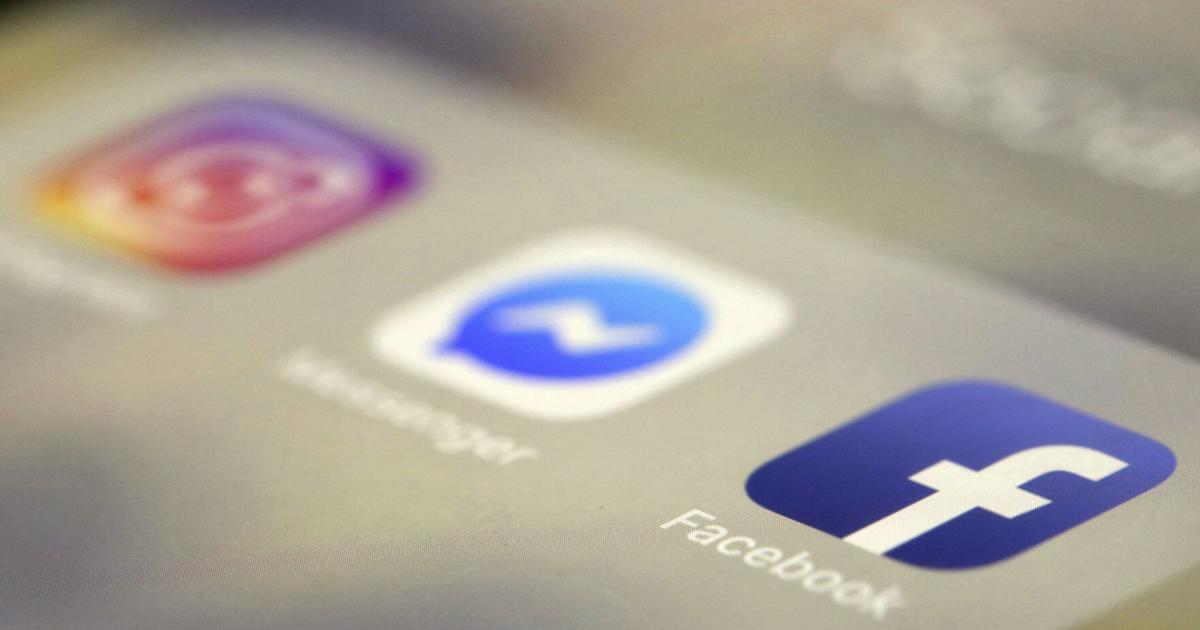They definitely are, though I don’t know how even 4.5 billion dollars would help the issue any.
That can pay for a lot of educational aides to deal with people slipping academically. That’s the best I can come up with
They can also dissuade the behaviour in the future.
That’s only around 6k per student for the regions suing. I would argue Meta and co have done more than that in damage to each student and have likely also earned more than that off of each student. That money could do A LOT for our underfunded schools. Maybe they could finally teach everyone the dangers of using social media provided by companies with no morals who prefer to profit off of genocide and strife.
Oh boy I love seeing millions of dollars that could go to teachers go to lawyers instead. This lawsuit will never succeed.
@rbesfe @booja I heard on a newscast that the school boards don’t have to pay legal fees unless successful. I found this article which states:
“Ontario Premier Doug Ford suggested school boards should ‘put all their resources into the kids’rather than legal fees for ‘this other nonsense that they’re looking to fight in court.’
The four school boards said, however, that they will not incur any costs for the lawsuits unless they are successful.”
https://barrie360.com/scdsb-facebook-instagram-snapchat-tiktok/
1/2
[SCDSB Chair] Lloyd backed up what the other boards stated.
“We are moving forward on this litigation on a contingency basis and there is no cost to the board, so we are not wasting taxpayers money. We are not taking education dollars out of the classroom.”
———————
If the litigation is successful, Lloyd said they would want the funds to support students and provide additional resources that the board currently needs.2/2
deleted by creator
Is this article just super short or is there some sort of paywall that I’m not being prompted with or something?
It’s not long, but it’s not that short either:
Four Ontario school boards have launched $4.5-billion in lawsuits against social media giants Snapchat, TikTok and Meta — which owns Facebook and Instagram — accusing them of deliberately hurting students, interfering with their learning and harming their mental health, leaving educators to “manage the fallout.”
In four separate but similar cases filed Wednesday in Ontario’s Superior Court of Justice, the public boards in Toronto, Peel and Ottawa and the Toronto Catholic board allege the popular social media platforms were “designed for compulsive use (and) have rewired the way children think, behave, and learn” and are calling on the companies to make improvements, say their statements of claim.
School boards have had to bring in staff, resources and programming to mitigate the “significant impacts that these addictive platforms are having on our students,” said Colleen Russell-Rawlins, director of education at the Toronto District School Board, the country’s largest.
“We’re managing mental health challenges, loneliness and … discrimination — the slurs that we’re seeing students use, some of that emanates from what’s on social media,” she added.
“We really want to raise awareness and ultimately get these companies to acknowledge and to make these things safer,” added Brendan Browne, director of education for the Toronto Catholic District School Board.
The Star reached out via email to the social media companies for comment about the allegations, which have not been tested in court.
A spokesperson for Snapchat said it “was intentionally designed to be different from traditional social media, with a focus on helping Snapchatters communicate with their close friends. Snapchat opens directly to a camera — rather than a feed of content — and has no traditional public likes or comments.”
While “we will always have more work to do, we feel good about the role Snapchat plays in helping close friends feel connected, happy and prepared as they face the many challenges of adolescence,” the spokesperson said.
Responses from the other social media companies were not received by deadline.
Russell-Rawlins said boards have struggled, adding “our students are not fully present” given studies have shown that more than 90 per cent of kids in Grades 7 to 12 use social media daily, and 45 per cent of them for more than five hours which “takes them away from the social relationships that are part of the fabric of their growth and development and socialization.”
Add cyberbullying into the mix, with the “escalation of aggression that shows up in schools for teachers, vice-principals, principals and other professionals to help students manage and de-escalate.”
The four boards are represented by Neinstein LLP, and will not be out of pocket for legal costs as the firm will take a contingency fee.
Duncan Embury, the firm’s head of litigation, said the boards “view this as part of a process designed to create change, because we’re hearing first-hand from educators about the enormous harms that are occurring day-to-day in the school system because of these products.”
About 500 school districts in the U.S. have launched similar cases now making their way through the courts, as have some states, but Embury is unaware of any other cases in Canada.
Just this week, Florida Gov. Ron DeSantis ushered in a new law banning kids under 14 from social media and requiring parental permission from those ages 14 and 15 amid concerns over their mental health and well-being.
Cathy Abraham, president of the Ontario Public School Boards’ Association, said it’s up to other boards to decide if they want to take part.
“There’s been all kinds of encouragement for students to prank, and it’s resulted in violence in schools, and things being posted online … and it’s really landing in our classrooms where teachers are having to deal with behaviours” and boards have to direct “so many of our resources to it,” added Browne.
Pino Buffone, director of the Ottawa-Carleton District School Board, said “we encourage the integration of technology … but there’s no question that (these platforms) are distracting students and leading to a number of wellness issues — concerns that our students, our parents, guardians and caregivers are expressing.”
The boards allege the social media companies have “knowingly and/or negligently disrupted and fundamentally changed the school, learning, and teaching climate by creating and sustaining prolific and/or compulsive use of their products by students,” say their statements of claim.
“The defendants knew, or ought to have known, that their negligent conduct seriously and negatively impacts the student population by causing maladaptive brain development, compulsive use, disrupted sleep patterns, behavioural dysregulation, learning and attention impairment, and other serious issues that impact the school, learning, and teaching climate,” the statements of claim also say.
Thank you! On my device, I only see the first two paragraphs for some reason. No indication that the rest of it is even missing 🤷
It’s an article tailored to match the attention span of the tiktok generation.
Cost of living in Ontario is insane -> Both parents need to work -> Harmful behaviour goes uncorrected because it is both not observed by parents and normalized (because fucking everyone is glued to their phones).
A real fix for this would be to mandate that mobile device manufactures create a child model of their devices, those devices are subsidized, and are a legal requirement for kids under 13. The devices would be tied to one or more parent devices and would have a slew of controls that allow parents to gradually introduce their kids to online life over a decade instead of dumping them onto an iPad at 3 years old.
This is, obviously, an issue of privacy but it’s different from a business tracking users. Parents should know what their kids are doing online and as they get older parents can give their kids more privacy and freedom as they show they can be responsible online. Once they hit 13 kids can have a full device and hopefully, they will have acquired enough good habits over the previous decade that they can be responsible online.
Anecdote time: when I was a kid my parents monitored what I did online extremely closely until I was about 13 or 14, at that point I had already shown that I wasn’t giving away personally identifying information, looking for instructions on how to build a bomb or sending hate-mail. By the time I was in high school my parents didn’t need to worry that I was doing anything harmful to myself or others online. Parents need to have tools available to them that allow this kind of gradual, monitored, access to technology.








